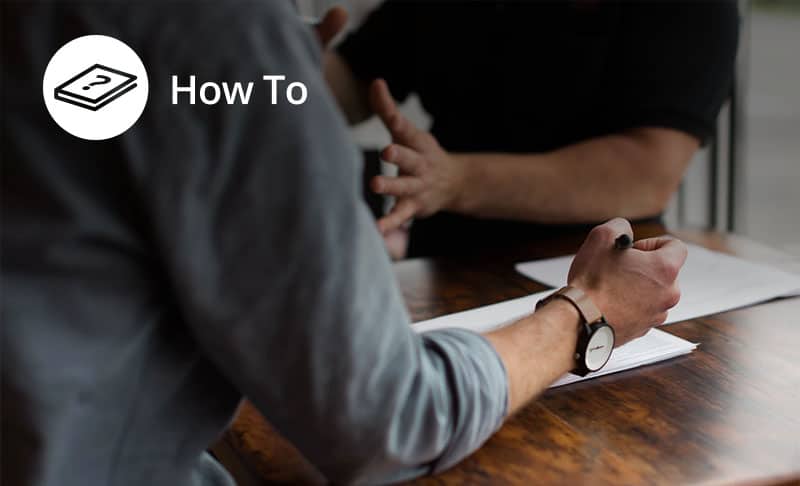
How Can I Build My Credit If I Have No Credit?
Building credit when you have no credit may be tricky, but it’s not impossible. Learn the best ways to build credit from scratch.
10 Ways to Establish and Build Credit When You Have No Credit
Your credit history is one of the things lenders consider when you apply for a car loan. If you’re new to using credit or your credit score is low because of a past money mistake, try these tips to build a solid credit history.
1. Know what affects credit history
There are five key things that impact your credit history and credit scores. Each one is weighted differently so it’s important to understand how they work together.
Here’s the breakdown of what affects your credit rating:
- Payment history – 35%
- Credit utilization – 30%
- Length of credit history – 15%
- Inquiries for new credit – 10%
- Types of credit used – 10%
2. Check your credit reports
Your credit report includes key information about your credit accounts, including what you owe and your payment history. It’s what’s used to generate your credit scores.
If you have no credit, your report may be on the thin side. But it’s still important to check your reports so you know where you’re starting from with building credit.
In Canada, credit reports are issued by two companies: Equifax and TransUnion. You’re entitled to request one free credit report per year from each company.
3. Review your report for errors
Once you have a copy of your report, check it carefully for errors. Inaccuracies or mistakes could drag your score down.
If you spot an error, you can dispute it with the credit bureau that reports it. Disputing an error could get it removed or corrected, which could help your score.
4. Open a bank account
Bank accounts don’t show up on your credit report so they won’t impact your credit rating directly. But a bank account could help you build credit if you’re using it to pay your bills on time.
Additionally, you may also be able to build credit if your account comes with an overdraft line. Paying overdraft on time could help you to establish or boost your credit score.
5. Get credit for rent payments
If you’re renting a place, your monthly rent payments could also help you establish credit.
Services like RentTrack allow you to report rental payments or ask your landlord to do so on your behalf. RentTrack, for instance, reports rent payments to Equifax.
As long as you’re paying on time each month, rent reporting can be a fairly simple way to build credit. Just know that some rent reporting companies do charge a fee for this service.
6. Open a secured credit card
Credit cards can be one of the most convenient ways to build credit when you have no credit. But you may have trouble qualifying for a traditional card if you have no credit history at all.
A secured card can help. This type of card requires a cash deposit to open an account but once you establish a pattern of responsible use, it’s possible to get the deposit refunded.
Just be sure to compare the annual percentage rate and fees for secured cards before choosing one.
7. Try a retail store credit account
If you have a favorite retail brand, check to see if they offer credit card accounts.
Retail store cards can generally only be used at that specific store but they can help you build credit when you’re a beginner to using credit. Similar to secured cards, check the APR and fees so you know what you’re paying for.
8. Become an authorized user
Asking a parent, other relative or friend to add you to one of their credit accounts as an authorized user could help you build credit quickly.
Being an authorized user means that you can use someone else’s credit card legally. At the same time, the payment history associated with that account shows up on your credit report.
As long as the primary cardholder pays the bill on time and maintains a low balance, you could benefit from their good credit habits.
9. Apply for a credit builder loan
Credit builder loans are what they sound like — loans designed to help you build credit.
Generally, they work like this: you apply for a loan and the bank approves you for a set amount of money. That amount is then held in an interest-bearing account.
You repay the loan, with interest. Once the loan is repaid, the money in the account is turned over to you, along with any interest earned.
If you’re interested in getting a credit builder, check your bank or credit union to see what’s available.
10. Set up automatic payments and/or payment alerts
Paying on time is the best way to continue building positive credit history once you’ve established credit. Late payments can do serious damage to your credit score.
A simple way to avoid paying late is scheduling automatic payments to all your bills from your bank account. And if that’s not an option, consider setting up payment alerts so you always know when the next due date is.
Building credit can help when you’re ready to buy a car
If you’re ready to purchase a new or used car and you need financing, good credit can work in your favor. But don’t panic if your credit score isn’t where you’d like it to be yet. At Birchwood Credit Solutions, we work with borrowers from a variety of credit backgrounds to find the best financing option to fit their needs.
Having no credit history might seem like a disadvantage — and it can make it harder to get a loan — but it’s actually an opportunity to build a good credit score from the ground up. Everyone has to start somewhere, so why not start on the right foot?
Tips for good credit habits
Having good credit is all about being financially responsible. Lenders want to know that they can trust you to pay back what you’ve borrowed and they do that by looking at how you’ve behaved with credit in the past.
Your credit score is calculated by your payment history, amount owing, length of history, new credit and variety of credit. Check out our blog post that goes into more detail on how credit score is calculated. There are a lot of things you can do to improve your score, but the most important is paying all of your bills on-time and in-full.
Here are a few other tips:
- Increase your credit limit;
- Use credit often;
- Keep a low balance on revolving accounts; and
- Monitor your credit report.
Starting off with good credit habits will help you build a good reputation as a responsible borrower.
How to establish your credit
There are plenty of resources out there for people looking to build their credit. Here are a few proven methods:
- Get a secured credit card
- Apply for a student credit card
- Become an authorized user
- Get a co-signer
- Find a credit-building loan
- Make your rent count
- Get a student loan
- Get a car loan
Get a secured credit card
A secured credit card works just like a regular (or unsecured) credit card, but doesn’t require a credit check or previous credit history for approval. Instead, card issuers ask for a security deposit as collateral on the account.
The amount of the deposit varies from $100 to $10,000 and the amount you put down becomes your credit limit. Your deposit is returned to you if you decide to cancel your card.
Since the issuer will be reporting your monthly payments to the major credit bureaus, secured credit cards are a great way to build credit without the risk of spending more money than you have.
Check out our blog post for the best credit cards to apply for when you have no credit.
Apply for a student credit card
Student credit cards are designed for young people with little or no credit experience. Most are easy to get approved for — as long as you’re a college or university student — and they often have lower interest rates than other credit cards.
This can be a smart way to get into the unsecured credit card market if you have no credit history. Make small, regular purchases with your card and pay off your balance each month to build credit.
Becoming an authorized user on someone else’s credit card is an effective way to build credit without liability. You are able to make purchases with the card in your name, but because you’re not the primary cardholder you’re not responsible for paying off the debts that accumulate.
As an authorized user, the account activity will be reported to the credit bureaus under your name as well — giving your account a boost without having to apply for your own credit. The downside is that negative activity, like late or missed payments, will also be recorded in your name.
Get a co-signer
If you need a loan but don’t have enough established credit to be approved on your own a co-signer can help you out. A co-signer is essentially lending you their good credit so you can take out a loan. This blog post explores more about how cosigning a car loan works and how it can improve your credit situation.
Getting a co-signer can be a good way to build credit for someone with no history, but it can also be risky. As with being an authorized credit card user, your co-signer is responsible for making delinquent payments. Regularly missing payments can put a strain on your relationship with your co-signer, who is usually a family member or close friend.
Find a credit-building loan
A credit-building loan is similar to a secured credit card. With this type of loan you borrow a specific amount and your bank deposits the sum into a special savings account. You won’t be able to access the money until you’ve paid off the total through agreed upon monthly payments.
A credit-building loan is ideal for someone with no credit because they have minimal requirements. Your bank will report your monthly payments to the credit bureaus. Credit-building loans are usually offered at credit unions instead of larger banks.
Make your rent count
If you pay rent you can make that regular, monthly payment count towards your credit history. This is a new area of credit reporting in Canada and you’ll have to sign up for the service through a third-party company, like RentTrack.
RentTrack reports rent payments to Equifax Canada made through its online system. While this is a great option for building credit without getting in debt, the service isn’t free and your landlord also has to be on board.
Take out a student loan
Instalment loans are great for people new to credit because they have a set borrowing amount, unlike credit cards where your balance fluctuates with your usage.
Student loans don’t require a credit check or a co-signer. They can help you pay for tuition and often don’t need to be repaid until after you graduate. It can, however, take a long time to pay off student loans because the amount borrowed is usually quite high.
Apply for a car loan
Car loans are another great instalment loan option for people with no credit history. With a car loan, you borrow the amount needed to cover the cost of the car and are set up with a monthly payment and interest rate that stays the same throughout the term of the loan.
You can build a great credit foundation by making all your payments on time and paying off the loan in full. However, not every lender will give a car loan to someone with no credit.
Birchwood Credit Solutions specializes in car loans for customers with bad or non-existent credit. Give us a call today or visit one of our three locations to learn about our quick and easy application process.



